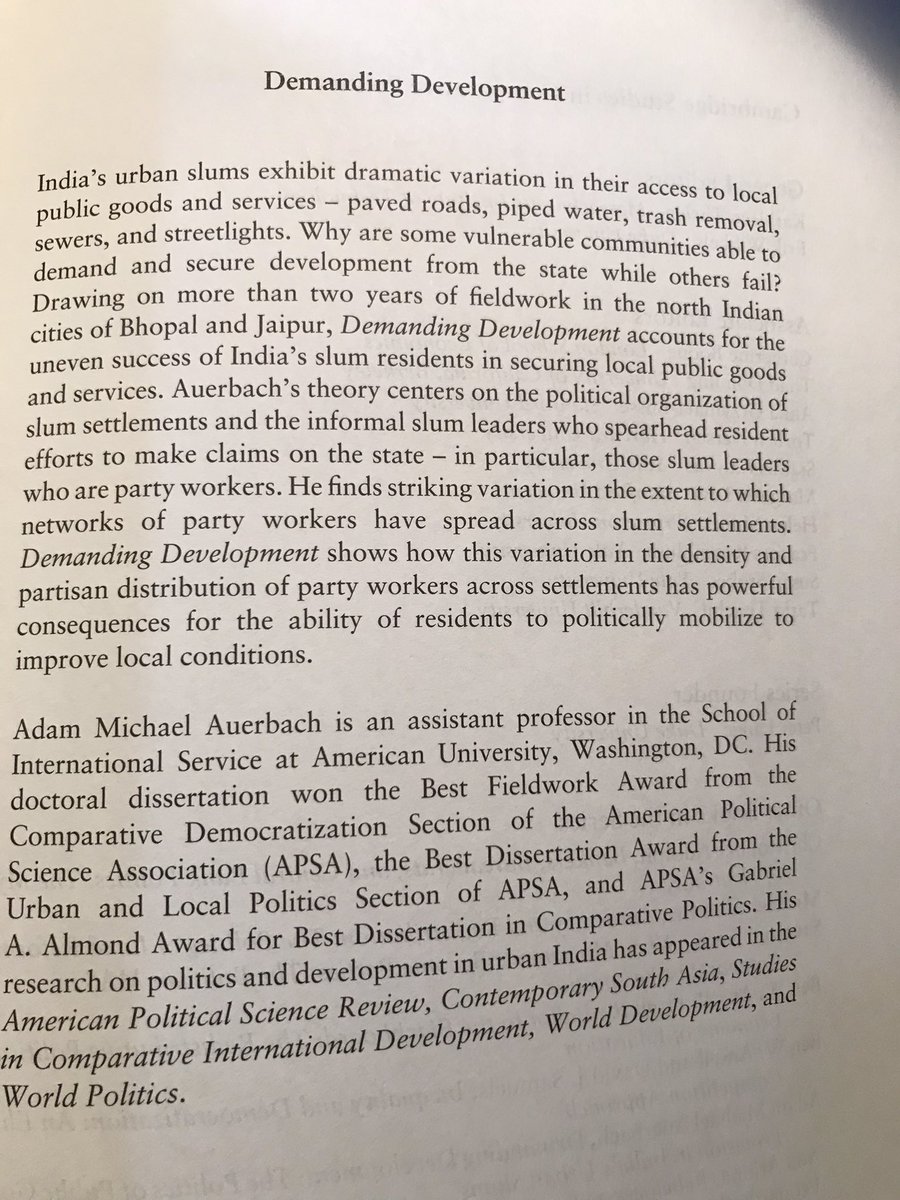
#RPVBooks I had read some of @adam_m_auerbach ’s work before and I sort of knew that his book would be amazing and it did not disappoint. As a scholar of urban governance and public services provision, Auerbach’s book hits all the sweet spots: informality, comparative politics. 

I had read a few of Auerbach's articles, but the one that hit me like a brick wall was this one: link.springer.com/article/10.100…
Because it really showed multiple ways of using formal and informal archival materials. Excellent work. So, I knew more or less what I was going to get.
Because it really showed multiple ways of using formal and informal archival materials. Excellent work. So, I knew more or less what I was going to get.
Auerbach’s argument is that networks of party workers are able to put more pressure on governments, which enables them to demand better public services/public goods (you can read the book summary in this photo). It’s a great comparative politics study with mixed methods. 

There’s a metric tonne of things to love about Auerbach’s book, from his detailed, carefully constructed research design to the way in which he poses the puzzle he’s tackling, to the study of politics within informal slums in India. I loved that he spoke about scope conditions. 

You probably understand why I love Auerbach's book: it's a study of urban informality and the comparative politics of public service provision (two of my favourite research areas), but also because I teach mixed methods, his book allows me to showcase multiple ways of mixing them
I found that the Scope Conditions section really hits an area that I find some scholars don't seem to highlight in their work: "this is where you would expect my theory and empirical results to stand, and this is where you probably won't see my theory working, and here's why"
Overall, a great book, highly recommended.
</end thread>
</end thread>
• • •
Missing some Tweet in this thread? You can try to
force a refresh



